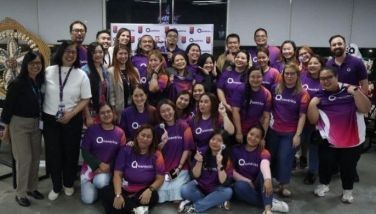AI: A threat to humanity?
The future is here. Today technology is so advanced that it can perform various human activities with high precision, effectiveness, and efficiency.
Artificial Intelligence AI, as widely known, is among the latest gripping achievement but feared inventions of modern technology. Artificial Intelligence is the simulation of human intelligence processes by machines, particularly computer systems. Its purpose is to provide software that can reason on input and explain output. It will provide human-like interactions with software and offer decision support for specific tasks, but it's not a replacement for humans.
AI has been a fascinating theme in many Hollywood movies, such as the futuristic series: Star Wars, Terminator, and The Matrix. It dramatized a suspenseful and complex storyline in I Robot, Chappie, Bicentennial Man, Robocop, and Big Hero 6.
AI does not have only its entertainment value. It also has the potential to revolutionize our world in countless ways, from improving healthcare and education to transforming transportation and agriculture. However, as with any technology, there are also risks associated with the development and deployment of AI.
One of the primary concerns is the potential for AI to become too powerful and ultimately pose a threat to humanity. This scenario occurs when AI systems become so advanced that they can act autonomously and make decisions that could harm humans.
One example is the development of autonomous weapons, which can target and harm individuals without human intervention. Another concern is the potential for AI systems to become biased and perpetuate discrimination, feed on manipulated data sets, and failing to consider the full range of human experiences.
Another risk is job displacement, as automation can lead to the loss of millions of jobs across industries. While some experts argue that AI will create new jobs to replace those lost to automation, others fear that the pace of change may be too rapid for workers to adapt.
There is also a risk of AI use for malicious purposes, such as cyber-attacks or surveillance of individuals without their consent. As AI becomes more widespread and controlling, we must develop safeguards and regulations to prevent misuse.
To mitigate the risks, we must approach the development and deployment of AI with caution and foresight. It includes investing in research to understand its risks and benefits and developing ethical guidelines and standards for its use.
Also important is to involve a diverse range of stakeholders in the development and deployment of AI, including experts in the field such as ethics, sociology, law, and other disciplines who may be disproportionately affected by the technology.
Finally, while the potential benefits of AI are vast, we must take seriously the risks associated with its development and deployment. By using AI with caution and planning and developing ethical guidelines and standards for its use, we can ensure that AI is a force for good in our world rather than a threat to humanity.
- Latest






















